“We don’t have the backup we used to have, and the agencies know it,” Jacinthia Jones says, assessing the tough reality of independent journalism in the 21st century. During her 20 years working for The Commercial Appeal, Jones watched the paper’s education beat shrink from a team of a four full-time journalists to a single writer with additional editorial responsibilities — a change that’s definitely contrary to public interest in a community where education concerns run high.
Today, Jones is the Memphis bureau chief for Chalkbeat.org, a digital nonprofit newsroom focusing on education policy, with an eye toward correcting the coverage gap wrought by modern newspaper economies. Chalkbeat’s commitment to sharing free education-related content in partnership with relevant media organizations places Jones at the bleeding edge of conversations about Memphis’ print journalism future.

Jacinthia Jones
“When I worked for The Commercial Appeal, if you requested information and somebody told you ‘no,’ we’d call in the lawyers,” Jones says, reflecting on the daily paper’s financial resources and its historic role in forcing transparency and institutional oversight. “If you look at a lot of the court cases, The Commercial Appeal was filing the suit. Now these agencies are calling our bluff,” she says. “What are you going to do?”
Gather round the campfire, friends, and I’ll spin a tale of suspense, brimming with drama, comedy, and carnage. Information economies are anything but dull, and the ongoing demise of local and regional newspapers affects you personally and everybody you know, whether you’re a serial subscriber or only care about coupons and crossword puzzles. It’s a story about digital triumphalism and unintended consequences disrupting everything from how the Centers for Disease Control and Prevention tracks the spread of infectious diseases to consumer education and government oversight.
Local and community newspapers are a vanishing species. Among the survivors, many, like The Commercial Appeal, have become so diminished by layoffs, consolidation, and circulation loss (not to mention the steady shedding of tangible assets and influence), a spooky-sounding term has been coined to describe them: “ghost papers.”
Many articles have valorized print journalism and warned about the important things communities will lose if local papers go dark. This isn’t that kind of story. This is more like Game of Thrones, with Gannett, the CA‘s corporate parent, squaring off against MNG Enterprises (aka Alden Global Capital), a hedge-fund-backed media group formerly known as Digital First.
“If Alden gets Gannett, I think it will be a disaster for The Commercial Appeal,” says Eric Barnes. As the publisher of Memphis’ digital startup The Daily Memphian, Barnes wants to be clear: “That would not be a good thing for Memphis.
“Their track record is clear,” Barnes says of Alden’s infamous path to double-digit profitability. “People are so used to cuts, they may not be fully processing the level of cuts this could mean.”

Eric Barnes
Although its initial purchase offer was rejected and characterized by Gannett as “not credible,” Alden Global Capital/MNG/Digital First, is a minority shareholder and can stack Gannett’s board with Alden-friendly directors. That means the company might change its business philosophy, even if it never changes hands. So, if the takeover stalls or fails, it’s not impossible that the surviving CA could still be reduced to a West Tennessee edition of The Tennessean. It could also just as easily vanish like an apparition and never be heard from again.
And if it disappears, what then? Is the not-for-profit Daily Memphian positioned to replace the city’s historic paper of record? What’s the role played by community newsletters? Or social media? What about all the other news/lifestyle publications like the Memphis Flyer, StoryBoard, the Memphis Business Journal, Memphis Parent, La Prensa, or The Best Times? What about smaller, digital-only newsrooms like the neighborhood-focused High Ground News and the justice-oriented MLK50? Are Memphians equipped to sift through the clutter, internet noise, and propaganda to access the range of information and basic utility daily newspapers still bundle in print and online? Can other local news sources fill the void? That’s the big question.
About the Carnage …
The media-consuming public craves blood, so here it is: During the period between 2008 and 2017, newspapers shed nearly half their editorial workforce, according to data from Pew Research. During roughly the same period, one in five newspapers shut down nationwide.
The Expanding News Desert comprehensive report put out by the University of North Carolina’s Center for Innovation and Sustainability in Local Journalism in 2018, pegged the number of U.S. newspapers closed since 2004 at just under 1,800. The negative trend continues uninterrupted due to media consolidation, and the one-two-punch of changing technology and reader habits. But hedge funds also fundamentally changed the nature of newspaper ownership when they bought in during the Great Recession, circa 2008. During that period, advertising revenues and the price of newspaper companies bottomed out, transforming the market from a predictable “buy/hold” environment into a five-year flipper’s game.
The UNC report shows more than half the country’s newspapers changed hands in the last 15 years: “Many have been sold two or more times.” The Commercial Appeal, for example, a Scripps-Howard product since 1936, was merged with Journal Communications in 2015, then, just a few months later in early 2016, Journal Communications was obtained by Gannett. In January, 2019, Gannett received an unsolicited acquisition proposal from MNG/Digital First Media, the newspaper company owned by Alden Global Capital.
Self-inflicted Wounds
You’ve probably read stories about the newspaper industry’s decades-long struggle to staunch its slow readership bleed-out. Most of these stories focus on technological change or popular ideological narratives, and every one of them is misleading. Without a doubt, the most drastic newspaper consumer loss of the past 20 years was self-inflicted.
In 2008, for the purpose of reducing costs related to wages, ink, gasoline, and newsprint, The Commercial Appeal curtailed its delivery in Arkansas, Mississippi, and outlying parts of West Tennessee. This change fit a national pattern, as major city dailies ended rural home delivery. This deliberate shedding of the newspaper’s most expensive customers heralded a new emphasis on digital distribution while killing readership that was never resurrected online. The change hedged calculated consumer loss against variable cost savings and the promise of virtually free digital distribution. The change aimed to save money but also made it harder to cover costs associated with newsrooms and the creation of original news content.
Ending rural and regional home delivery also contributed to the nationwide rise of what are now being called “news deserts,” a dynamic that worsened with corporate acquisition and subsequent shuttering of hometown and family newspapers in places where 40 to 60 percent of the population may not have broadband or wi-fi access. News deserts are most common in Southern states, according to the UNC report, and less likely to affect younger, whiter, and more affluent communities.
Profit-minded investment companies with no historic ties to publishing or local media markets have been more inclined to sell or shutter underperforming acquisitions than previous ownership groups. Which brings our story back to Alden/MNG/Digital First’s bid to acquire Gannett’s papers. Ironically, The Commercial Appeal — in spite of being turned out of its landmark Union Avenue offices, and frequently embarrassed by insensitive, out-of-town editing — is producing some of its most relevant, energized work in years.
Nostalgia for a mythic golden age of journalism makes it fun to believe that relevant work pays the bills. It doesn’t. And it’s not hard to understand why critical evaluations of the newspaper business and its confusing impact on content, quality, and meaning can be experienced as an attack on weary editors and reporters doing the best they can with fewer resources and less material support.
Simply put: News reporting that changes policy at Juvenile Court or shows us how TVA may have endangered Memphis’ water supply or that equips readers to make better choices as citizens and consumers doesn’t create subscription or advertising revenue. Investigative reports and in-depth explanatory journalism may be the result of hours of interviewing, weeks of research, and months or years of institutional knowledge and beat coverage. The first draft of history is always expensive to make. But none of this is especially interesting to advertisers or general-interest readers.
“We’re used to writing an article and thinking all these people are reading because we had all this circulation,” Jones says, recalling her time at the CA. “Now, with digital metrics, we know that’s not always true,” she says, illustrating an important point: The most important newspaper reporting isn’t always the best-read or most desirable for web traffic or circulation. It’s always been subsidized by softer content in a diverse bundle of professionally edited and curated information. This unpleasant fact makes the prospect of starting a fully digital, general-interest daily especially daunting — in an environment where only one in four digital news startups make it.
A New Hope
The Daily Memphian doesn’t yet share its number of paid subscribers, but the publication says monthly page-views clock around 1,400,000, and every morning the paper sends a news digest to 23,000 email accounts. Stories about University of Memphis basketball coach Penny Hardaway do very well. Stories about government and public affairs sometimes do, and sometimes don’t.
“Paid subscribers broke through the first year’s projections in a couple of months,” Barnes says. But he worries The Daily Memphian‘s big rollout may have set expectations too high. “We didn’t cover something on the first weekend, and got a ton of criticism,” he says. “People really thought we were going to cover everything right away, top-to-bottom, 24/7.”
Looking for an experience like the traditional print newspaper bundle, readers have asked for obituaries, comics, puzzles, and national and regional news that may be available elsewhere, but hasn’t been a regular part of the DM‘s mix.
Barnes responded to his first round of criticism by adding five reporters to pick up night and weekend work. He plans to eventually include AP news and additional soft content.
The riddle of the digital news Sphinx goes something like this: “How can an online startup produce enough original content across a broad enough range of consumer interests to build a big enough subscriber base to support a newsroom able to produce original content across a broad range of consumer interests?” Repeat that enough, and you’ll start to see the economic dilemma in an information environment where it’s tough to put content behind a paywall if comparable goods are available free, elsewhere.
Newspaper stories and digital posts are what economists call “experience goods.” You can’t know if a story will be interesting or useful unless you read it, so news organizations rely on columnists and star-reporters to give consumers and potential consumers some idea of what to expect before they buy. As a startup, The Daily Memphian had no brand recognition, so it hired marquee names from The Commercial Appeal: sportswriters Geoff Calkins and Chris Herrington, and food guru Jennifer Biggs. Barnes thinks bringing these known commodities onto a team rounded out with younger but experienced reporters is one of his fledgling newsroom’s big success stories.
“They already knew Memphis,” he says of his team. “There was no learning curve.” Additionally, The Daily Memphian distributes content acquired via partnerships with education policy newsroom Chalkbeat.org and the University of Memphis’ Institute for Public Service Reporting.
By now, at least some of you are probably asking, “Who cares about newspapers?” It’s taken as an article of faith the traditional models are dying, right? But remember Jacinthia Jones’ opening comments about how the agencies know when you’ve got “no backup.” Now figure in a related piece of collateral damage: Between 2005 and 2010, while so many newspapers were biting the dust, the number of Freedom of Information Act requests being filed by government watchdogs dropped by half. This data was reported by James T. Hamilton, the Hearst Professor of Communication at Stanford, in his latest book, Democracy’s Detectives: The Economics of Investigative Journalism.
Hamilton answered questions for this story, and the data reviewed in Democracy’s Detectives and his earlier economic critique, All the News That’s Fit to Sell, inform much of this article. Hamilton’s work shows how trends like the ones outlined in this story, “point to a lower chance” of accountability stories being told by professional news organizations about local institutions.
“If the costs of discovering and telling stories drops radically, then it may be the case that subscriptions at the local level would support a smaller newsroom that would survive online,” Hamilton wrote in an email exchange, offering a ray of hope about the viability of local newsrooms. “If a nonprofit or local online service generates other goods, such as events that are ticketed or sponsored, that could also generate income,” he said, allowing that use of artificial intelligence may eventually make story discovery and assembly cheap enough that, “local subscription or nonprofit [models] might support a local bundle.”
Savages at the Gate
In late February, Senate Minority Leader Chuck Schumer sent a sternly worded letter to Alden Global Capital, expressing concern about what could happen if the hedge fund acquired Gannett newspapers. He’d already weighed in on the Senate floor, noting that Gannett was a troubled example of newspaper consolidation, plagued by layoffs and delocalization.
Schumer’s worries were at least a little ironic, considering what Memphis stands to lose if there’s a takeover. Hedge fund-backed owners like MNG/Digital First depend on deep layoffs and cost-cutting, including the outsourcing of back office, sales, and certain editorial duties to central hubs, far removed from the places where news is gathered and where the paper is circulated and primarily read. They sell a newspaper’s real estate holdings and other tangible assets, squeezing all the assets for cash. As the UNC report shows, there’s always been a willingness to sell poorly performing properties or to close them entirely, “not so much to inform the public or hold officialdom to account, but to supply cash to use elsewhere.”
In other words, so much of the worst that might happen has happened already. And yet, to borrow from Bloomberg.com columnist Joe Nocera, when MNG/Digital First moves in, the layoffs aren’t just painful, “They’re savage.”
Epilogue
All newspaper news appears to be bad news. The trends are terrible. The outlook is grim. And yet, most of the people engaged in the act of gathering, organizing, delivering, and paying for the news seem determined, if not optimistic about finding a way forward. Barnes is hopeful he’s found the right business model to go paperless. Jones is excited about using text-based news delivery to close the digital divide. MLK50, a justice-oriented not-for-profit led by former Commercial Appeal columnist Wendi Thomas, expanded its capacity by joining the local reporting network for ProPublica, a national, not-for-profit digital newsroom.
Karanja Ajanaku says he has “some awareness” of what’s happening in the newspaper industry, but the executive editor of the Tri-State Defender takes a unique perspective. “We’re in growth mode,” he says, describing a plan to move the historically black newspaper’s online content behind a paywall. Diverse representation in Memphis newsrooms has sometimes been called out as problematic, and in a majority-black community he thinks the Defender has been underperforming its potential to serve everybody. “But we have to be able to do a deeper dive into the community, and to do that we’ve got to have reporters,” he says, returning to a more familiar theme. “We’ve got to have journalists. We’ve got to have editors — local people telling local stories. So we’re asking the community to help us help them, and we think they will respond to that.”
Excerpts from conversations with Jacinthia Jones of Chalkbeat, Eric Barnes of The Daily Memphian, Karanja Ajanaku of the Tri-State Defender, Wendi Thomas of MLK 50, and Mark Fleischer of StoryBoard: Memphis will be made available online at Memphisflyer.com. Commercial Appeal Executive Editor Mark Russell did not respond to requests for comment for this story.


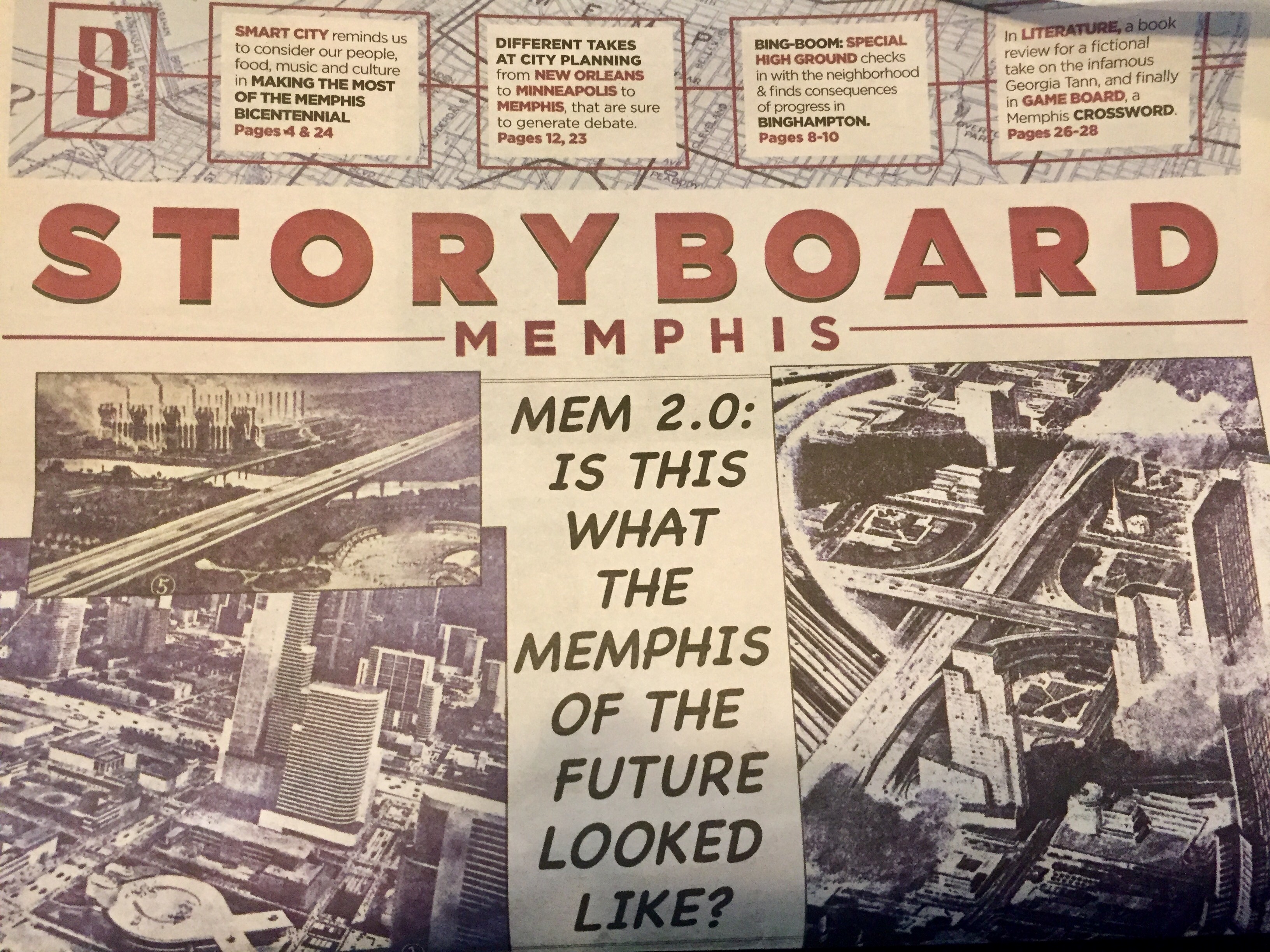




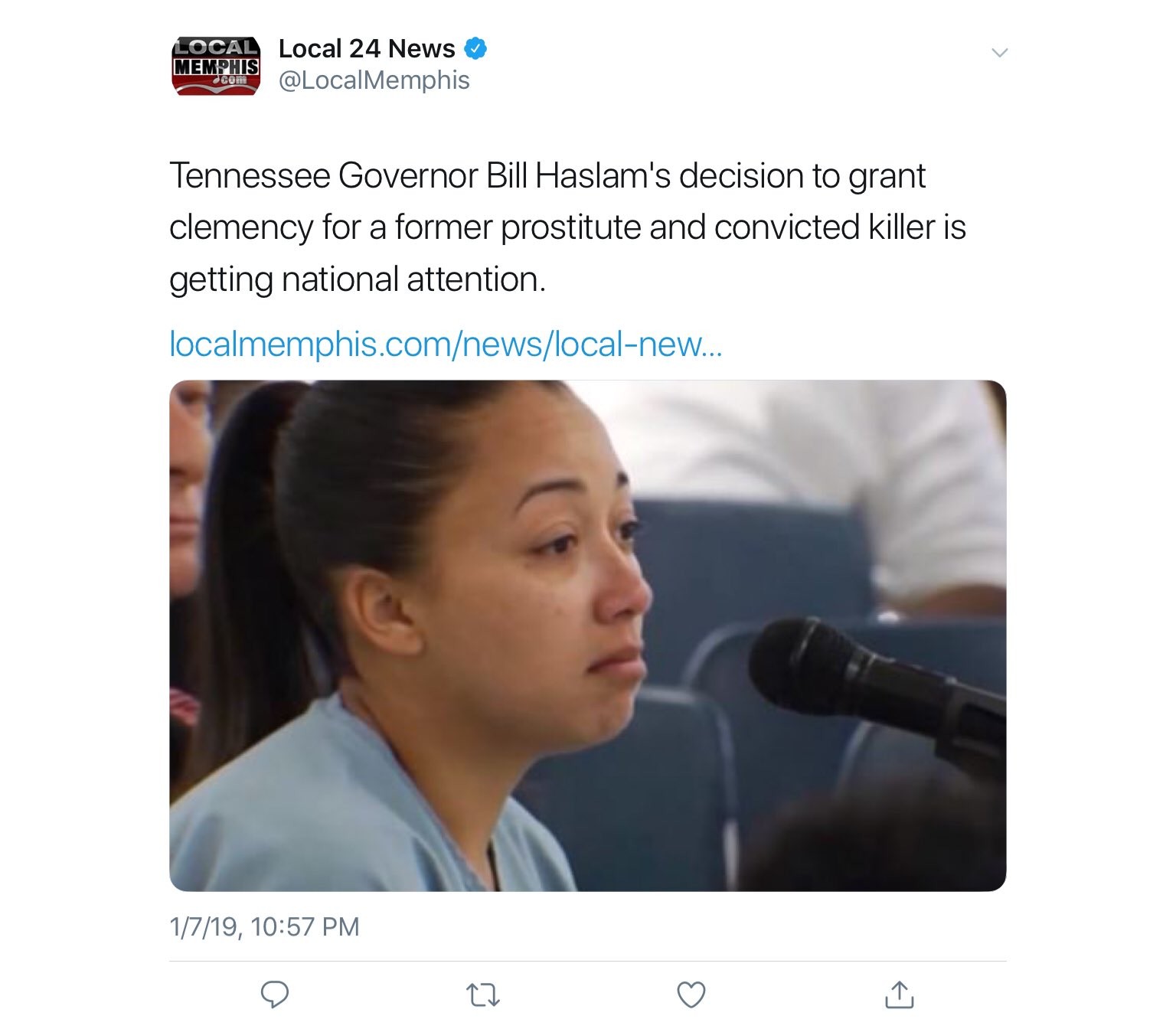


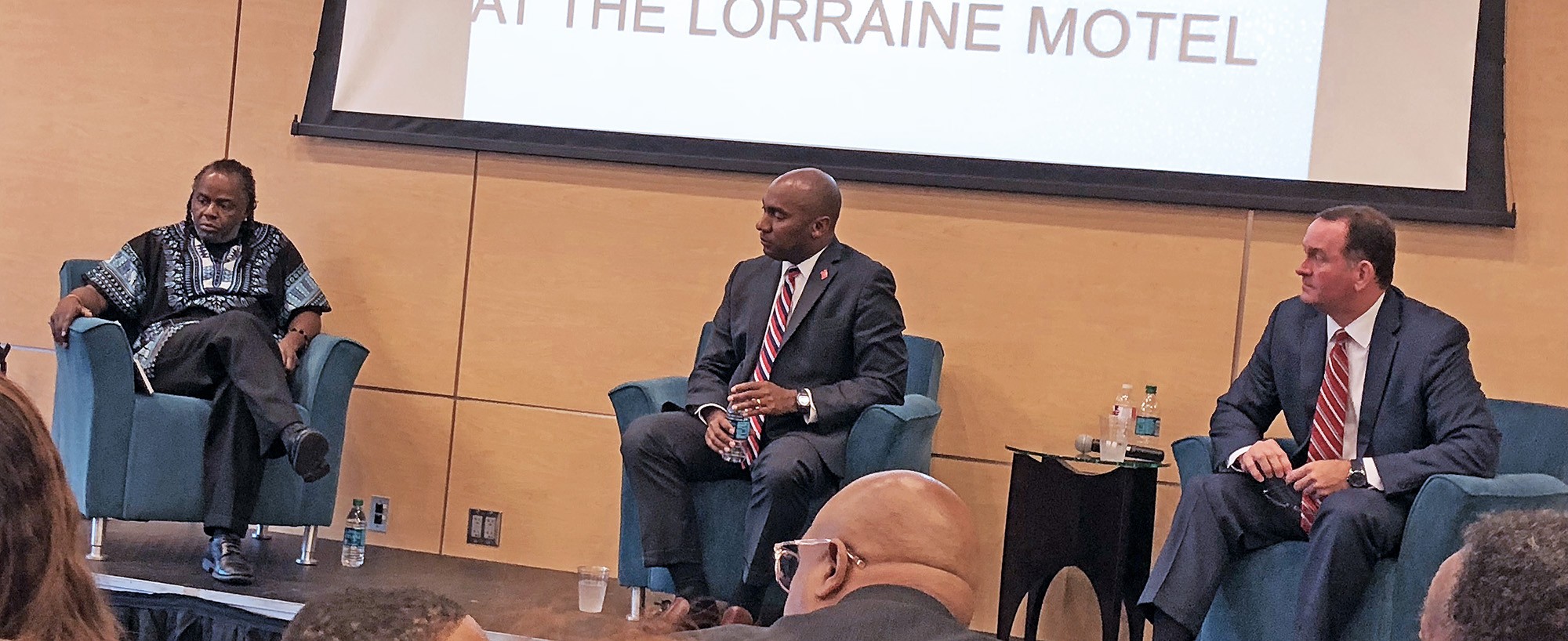 JB
JB 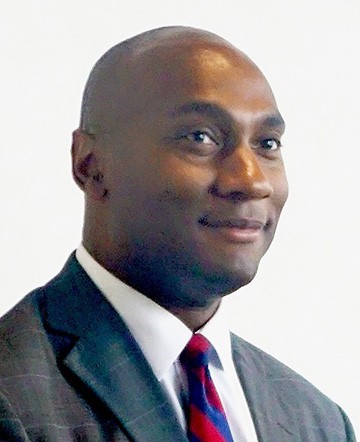 JB
JB 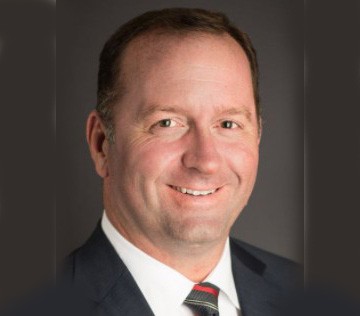

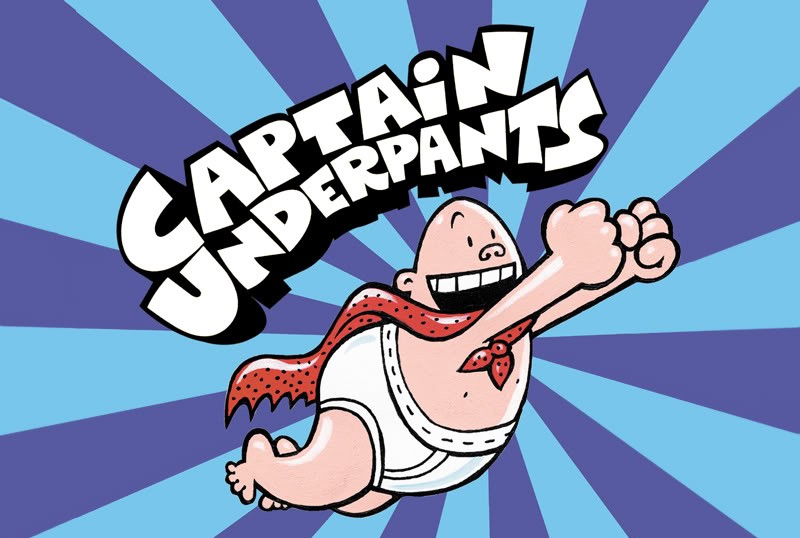
 Greg Cravens
Greg Cravens